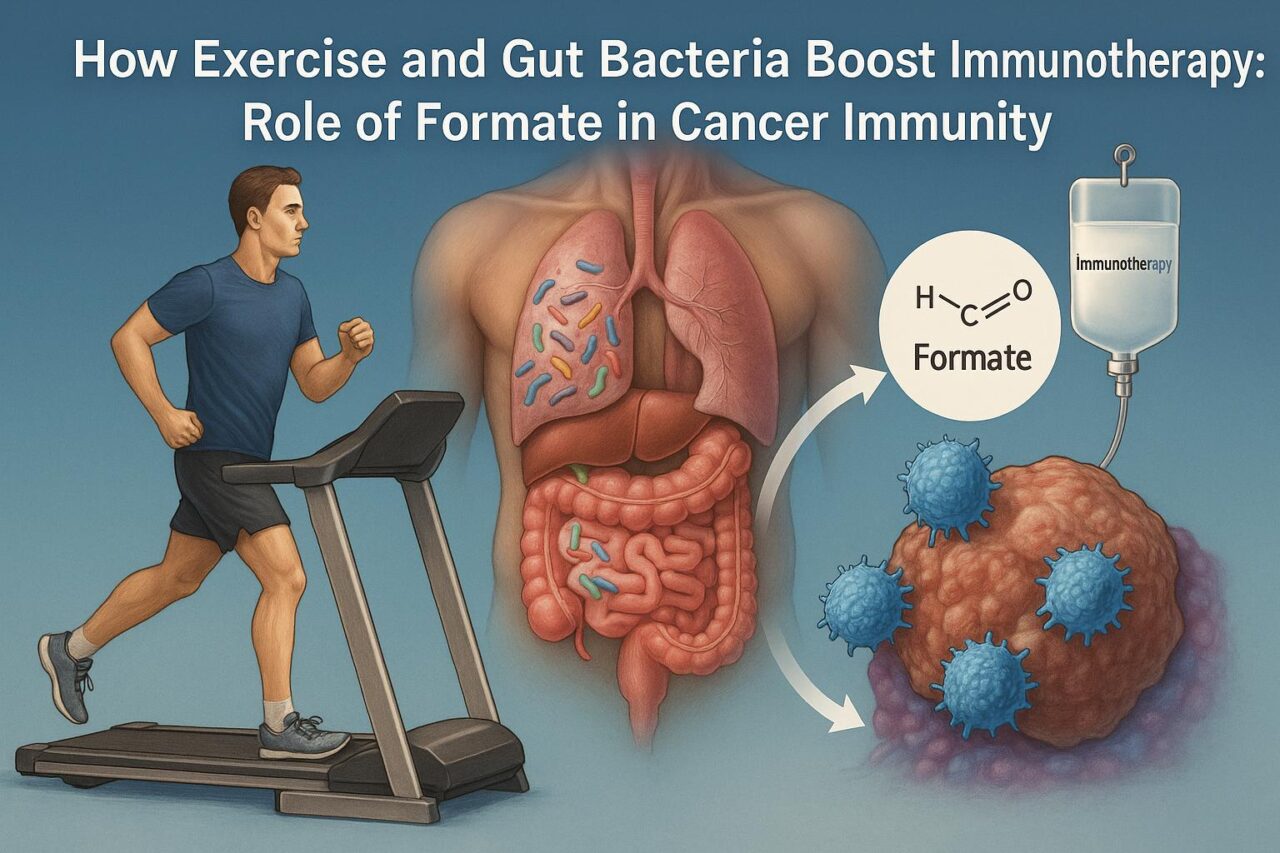A new preclinical study by Marlies Meisel, Catherine M. Phelps, and colleagues at the University of Pittsburgh provides mechanistic insight into how exercise may enhance the efficacy of immune checkpoint inhibitors (ICIs). While observational data have previously suggested a link between physical activity and improved cancer outcomes, the biological basis for this relationship has remained unclear.
In this study, the authors used a treadmill-based exercise model in mice with BRAF-mutated melanoma—a tumor type known to be largely resistant to immunotherapy. They observed that regular exercise led to a reduction in tumor growth, but importantly, this effect was dependent on both adaptive immunity (specifically CD8+ T cells) and an intact gut microbiota.
Further analysis revealed that the microbiota of exercised mice had distinct metabolic activity, notably an increase in the production of formate, a short-chain fatty acid and an intermediate in bacterial folate (vitamin B9) metabolism. This metabolite was found in higher concentrations in both the cecal contents and serum of exercised animals. When administered orally, formate replicated the tumor-suppressive and immune-enhancing effects of exercise, promoting CD8+ T cell activation and improving the efficacy of ICIs.
The effect was mediated through Nrf2 signaling, a known regulator of cellular stress responses and metabolism. In the absence of Nrf2, the benefits of formate and exercise on tumor control were abolished.
To assess potential clinical relevance, the researchers analyzed fecal metagenomic data from eight independent immunotherapy cohorts. They found that patients who responded to ICI therapy had higher levels of pyruvate formate lyase, the bacterial enzyme responsible for formate production, suggesting that this mechanism may also play a role in humans.

Implications
This study identifies a previously unrecognized mechanism by which exercise-induced shifts in gut microbial metabolism can enhance antitumor immunity. Specifically, it demonstrates that formate, produced by certain gut bacteria during folate metabolism, supports CD8+ T cell function and can improve response to immunotherapy in a preclinical model.
The findings raise the possibility of developing combinatorial strategies involving exercise, dietary modulation, or microbial metabolite supplementation (e.g., formate) to enhance ICI efficacy—particularly in immunotherapy-resistant cancers. Clinical studies will be needed to determine whether targeting this microbiota-metabolite pathway can translate into improved outcomes for patients.
You can read the article here.


